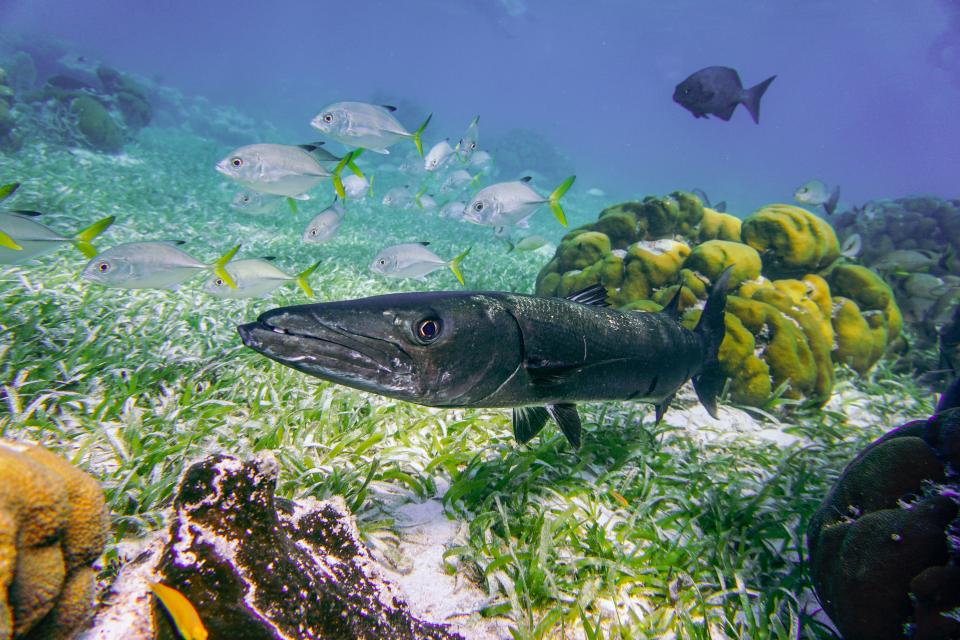Updates on Ocean Accounts

In this article we present the latest updates on ocean accounts contributed by the Global Ocean Accounts Partnership (GOAP)
The potential of ocean accounting to track a sustainable blue economy, Belize as a case study
A three-day workshop on ocean accounting was held in Belize, facilitated by the Global Ocean Accounts Partnership (GOAP) with presentations and updates provided by the CMZI, the Director of the Blue Bond & Finance Permanence Unit, and the Ministry of Blue Economy & Civil Aviation and the GOAP Secretariat. The workshop outcomes ultimately revealed the utility of ecosystem accounting, particularly for the ocean, in supporting marine spatial planning, sustainable blue economic development and related processes.
The workshop (15-17 August 2023) united 20 diverse stakeholders including government officials, experts in marine science and representatives from non-governmental organisations, with the aim to provide comprehensive training on ocean accounting and marine spatial planning. The workshop concluded with (1) the development of a two-year roadmap to ocean accounts in Belize, (2) initiatives for capacity development such as academic programs and courses focused on data collected and analysis for ecosystem accounting and (3) a collective vision of a sustainable future for Belize. Ocean accounts can be used in Belize as a compass to guide decision-makers through the intricacies of sustainable ocean planning, ultimately leading to sustainable ocean governance. The hope is that workshops such as these will help Belize achieve sustainable and equitable blue economic development for generations to come.
Read the full article following this link: https://www.oceanaccounts.org/the-potential-of-ocean-accounting-to-track-a-sustainable-blue-economy-belize-as-a-case-study/
Updates from Natural Capital Accounting in Laamu Atoll, Maldives
Following workshops in March and a pilot visit in April, team members from the Global Ocean Accounts Partnership Secretariat (GOAP) and Rekam Nusantara Foundation, returned to Laamu Atoll in August. Working with students from Maldives National University (MNU), the team collected data on seagrass condition for pilot ocean accounts while engaging and training local students on seagrass monitoring and natural capital accounting. The team surveyed 22 sites, assessed 15 ground truthing points and identified five distinct seagrass species. The parameters monitored included sediment type, seagrass species, canopy height and percentage cover, macroalgae and epiphyte percentage cover, and associated fauna
MNU students gained hands-on experience in data collection, species identification and understanding the ecological significance of seagrass ecosystems. This project and its related meetings and workshops have strengthened collaboration for natural capital accounting in the Maldives.
First attempt in the compilation of ecosystem accounts for the ocean at a regional sea scale.
The research article “Compiling preliminary SEEA Ecosystem Accounts for the OSPAR regional sea: experimental findings and lessons learned “ details the first attempt to compile ecosystem accounts aligned with the SEEA EA in the North-East Atlantic, in the OSPAR region.
The authors used open access data across the OSPAR region to produce accounts for selected ecosystems, which included valuing their services (fish provisioning, carbon sequestration and outdoor recreation) and assets. To aid with future attempts, they also identified challenges and lessons learned from this process. The process identified issues at the regional level in fitting and harmonizing data. This work represents an initial step to progress on ecosystem accounting and demonstrates that even with limited data and incomplete time-series, accounts can start being compiled to identify data gaps and prioritizing next steps.
Read a related article in the OSPAR convention website here
Find more information here.
Photo by Wouter Naert on Unsplash
